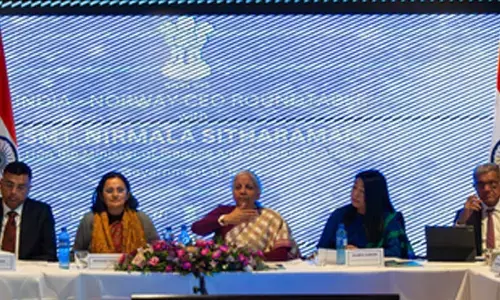Indian scientists developing diagnostic algorithm for female genital TB

Genital Tuberculosis (TB) is one of the major causes of tubal infertility. Some studies show that only two per cent of women with genital TB have live births. Genital TB is usually asymptomatic. So it needs a higher degree of clinical suspicion so that accurate and confirmed diagnosis of TB can be made and provide standard anti-TB treatment as early as possible.
Genital Tuberculosis (TB) is one of the major causes of tubal infertility. Some studies show that only two per cent of women with genital TB have live births. Genital TB is usually asymptomatic. So it needs a higher degree of clinical suspicion so that accurate and confirmed diagnosis of TB can be made and provide standard anti-TB treatment as early as possible. But the challenge is that the current range of standard diagnostic tests is less likely to pick up every case of genital TB.

Indian Council of Medical Research (ICMR) embarked upon a research study in November 2012 to develop an algorithm for diagnosing and treating genital TB patients. There are four research sites: All India Institute of Medical Sciences (AIIMS), Delhi; Post-Graduate Institute of Medical Education and Research (PGIMER), Chandigarh; King George’s Medical University (KGMU), Lucknow; and LEPRA Blue Peter Public Health and Research Centre (and Gandhi Medical College and Hospital), Hyderabad.
Dr Nomita Chandhiok, deputy director general of ICMR, said, "If women with genital TB are diagnosed late, the infertility risk and other harm done to their tissue are likely to be much more severe. The solution lies in early case detection and providing standard treatment for genital TB without delay. This multi-centric ICMR study aims to evolve a common algorithm for diagnosis and management of female genital TB which is nationally applicable. We expect the results to come by November 2015."
Dr Aparna Srikantam, Principal Investigator (PI) at the Hyderabad site of the ICMR, said that about 50-60 patients of infertility come to the Outdoor Patients Department (OPD) of Gandhi Medical College and Hospital every day. “These infertile couples are screened and those who are clinically identified as cases of presumptive genital TB (not confirmed) are followed up for the next two years. So far 120 couples have been screened in Hyderabad. Out of these, 15 are confirmed to have TB, and were promptly linked to the RNTCP’s Directly Observed Treatment Shortcourse (DOTS) centre in Gandhi Medical College and Hospital for standard anti-TB treatment.”
She added that all women undergo laparoscopy followed by histopathological tests, solid and liquid culture tests, Polymerase Chain Reaction (PCR) tests and immunohistochemistry tests. In PCR technology, a different set of specific primers or probes can be used.
Diagnosing every form of TB at the earliest accurately and providing effective anti-TB treatment are few of the key principles of effective TB care and control. Let us hope this study’s outcomes inform TB control programmes effectively.









